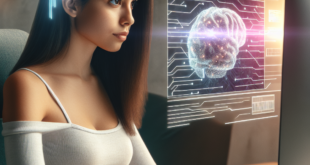Google has released its Magnifier app for Pixel phones that’s designed to make small, dimly lit, or distant text easier to read. The new accessibility app debuted on the Pixel 8 series introduced at Google’s Pixel event earlier this week, and allows users to “magnify small text, see object details, or zoom in on faraway text like street signs or restaurant menus behind a service counter,” according to the Magnifier app Play Store listing.
Magnifier is currently supported on Pixel 5 phones or later, though that doesn’t include the Pixel Fold or Pixel Tablet devices according to 9to5Google. The app itself features a fairly simple user interface. The default screen includes large + and – buttons used to control the zoom function, located on either side of the round shutter/freeze button, in addition to smaller buttons for enabling/disabling the camera flashlight and switching between the device’s front and rear cameras.
Additional features like adjustments for contrast and brightness, and color filters for improving text legibility can also be found by selecting the settings button on the lower left of the app. The app automatically adjusts the brightness of images taken in low-light environments, while the intensity of the built-in flashlight can also be adjusted with a slider.
After taking a picture of text enlarged by the Magnifier app, users can find additional options in the top-right corner of the screen that allow them to copy the text, listen to it via text-to-speech, or send the text to Google Lens for further analysis. Images snapped on the Magnifier app are not automatically saved to your camera roll, but can be saved to a specific camera folder to make them easier to find.
There’s currently no confirmation if the Magnifier app will be released to the wider Android platform. iOS has long offered a similar feature for iPhone owners over 40 who suffer from the onset of Presbyopia (the common condition that necessitates reading glasses), so it would be nice if such a useful accessibility tool was available more broadly.

 Latest Breaking News Online News Portal
Latest Breaking News Online News Portal




